In an era where inclusion and collaboration drive innovation, fostering equality and diversity in the workplace has become more than a moral imperative, it’s a strategic advantage. Organisations that embrace diverse perspectives create a harmonious environment that unlocks creativity and problem-solving capabilities, inspiring a sense of inspiration, motivating their teams, and showcasing the power of diversity.
Why is Diversity Important in the Workplace?
Equality and diversity are vital pillars of a thriving workplace. Together, they encompass more than just fair treatment, they foster respect, opportunity, and inclusion across every level of an organisation. While interconnected, these concepts play distinct individual roles that shape a positive and productive environment.
What is Equality?
Equality is the commitment to ensuring everyone enjoys and benefits from equal opportunities, free from bias or discrimination.
Equality levels the playing field so that no individual is held back because of their age, gender, race, cultural background, sexual orientation, or any other characteristic. Through equality, businesses can eliminate barriers, creating an environment where fairness is the foundation of every decision.
What is Diversity?
Diversity, on the other hand, extends beyond equality. It’s about recognising, embracing, and celebrating individual differences, seeing them not as challenges but as strengths. A genuinely diverse workplace is one where a wide range of experiences, perspectives, and identities – such as age, ethnicity, religion, gender, and beyond – come together to drive innovation and enrich a company’s culture.
While equality ensures everyone starts with equal opportunities, diversity builds a culture where those opportunities thrive via varied backgrounds and perspectives. Together, equality and diversity work in tandem to create a workplace that benefits entire organisations and society as a whole.
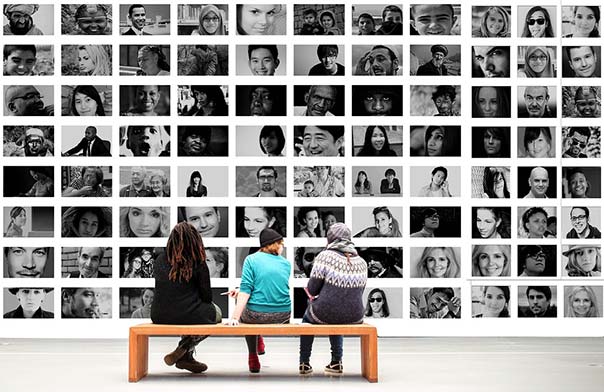
By striving for both, businesses can foster an environment that empowers everyone to contribute, collaborate, and succeed while abiding by the Equality Act 2010.
What is the Equality Act 2010?
Equality law applies to all businesses at every level and stage, from interns to management and hiring to firing. The Equality Act is in place to ensure that all employees enjoy equal opportunities that abide by employment law.
The act covers:
- Age
- Sex
- Disability
- Race
- Religion or belief
- Sexual orientation
- Marriage and civil partnership
- Pregnancy and maternity or paternity leave
- Gender reassignment
Whether it’s re-evaluating hiring practices or fostering a culture of respect and inclusion, there are many steps businesses can take to ensure that everyone within the organisation has a voice.
Below, we explore practical strategies to promote equality and diversity, paving the way for a more inclusive future.
Lead with Purpose
Leadership is pivotal in setting the tone for a healthy workplace culture. And leaders who openly champion diversity inspire others to follow suit.
This responsibility means embedding inclusivity into the company’s mission, values, and daily operations. Regular training on unconscious bias, culture, and inclusive leadership will equip teams with all the necessary tools to build an equitable workplace, empowering them with a sense of responsibility and the ability to make a difference.
Through transparent communication, leaders can address systemic barriers such as unequal opportunities for career advancement, lack of representation in leadership roles (e.g. fewer women in top management positions), and cultural insensitivity in the workplace.
By recognising challenges and celebrating milestones toward inclusivity, leaders can inspire their teams to work towards the summit of a completely equal workplace. Much like an expedition team thrives on shared goals, diverse teams thrive when united by a common purpose.
Create Safe Spaces for Open Discussion
Open communication is the foundation of understanding and collaboration. Employers can establish forums and employee resource groups or host regular feedback sessions, creating a safe, inclusive environment where employees feel comfortable sharing their experiences and concerns. For example, companies can celebrate cultural events, such as Black History Month, recognise Pride Month and International Women’s Day, acknowledge Mental Health Awareness Week, or host discussions on disability awareness. Diverse teams thrive when their voices are heard and valued.

JLA Speakers Breakfast for International Womens Day 2024
Encourage an Inclusive Recruitment Process
Building a diverse workforce starts with recruitment. This process should look beyond traditional hiring pools to identify underrepresented talent. Initiatives like blind recruitment, where the applicant’s personal information is removed from their application to prevent bias (e.g. gender, race, or age), and diverse interview panels, where candidates are interviewed by a group of people from different backgrounds to ensure a fair evaluation, can help dismantle unconscious biases.
Businesses can welcome candidates with unique perspectives that drive innovation by focusing on skills, potential, and lived experiences rather than rigid (sometimes outdated) qualifications.
Offer Ongoing Education and Training
Education is a continuous journey. Organisations must commit to providing regular access to conferences (to hear from specialist Diversity and Inclusion Speakers), seminars, workshops, and resources that promote awareness of diversity and equality issues. This engagement fosters a sense of commitment to the cause and is critical to promoting equality and diversity in the workplace.
Diversity Training Topics
- Recognising and addressing microaggressions.
- Encouraging allyship within teams.
- Educate on empathy and understanding for colleagues from different backgrounds.
By normalising these conversations, companies can educate and encourage employees to champion diversity in and out of the workplace.
Diversity Speakers
Hiring the help of a diversity and inclusion speaker is also a fantastic means of furthering your workforce’s education on equality and diversity. JLA is home to an eclectic mix of professional speakers, each bringing their unique perspective, experiences and expertise from their chosen field.
Some of our most popular diversity conference speakers include:
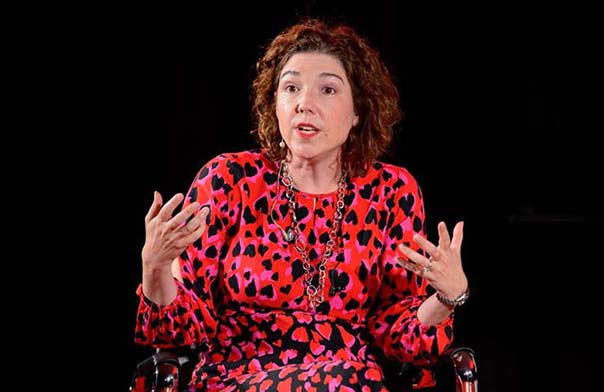
Christine Armstrong
Future of Work Author and Consultant
Christine, a communications and management expert and celebrated author, is a leading voice on creating inclusive, values-driven organisations fit for the modern world. She explores workplace diversity, hybrid work, and mental health, challenging outdated practices and encouraging businesses to rethink their strategies.
View Christine Armstrong’s full speaker profile.
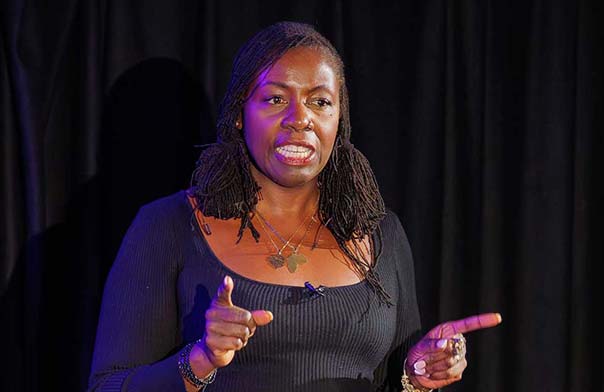
Naomi Sesay
Head of Creative Diversity at Channel 4
With over two decades of experience in television and media, Naomi Sesay has dedicated her career to championing diversity and inclusion, establishing herself as a trailblazer for social enterprise. Currently serving as Channel 4’s Head of Creative Diversity, she previously held the role of Head of Innovation and Diversity at Media Trust, driving impactful change within the industry.
View Naomi Sesay’s full speaker profile.
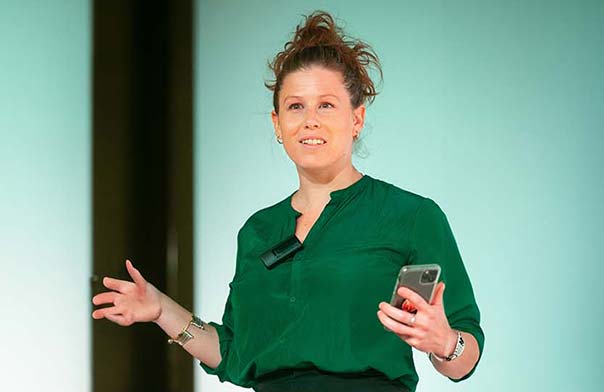
Caroline Criado Perez OBE
Bestselling Activist
In her compelling talks and acclaimed book Invisible Women, Caroline exposes the deep-rooted biases in data and everyday assumptions. Her insights reveal how the reliance on male-centric standards, from healthcare to technology, has not only marginalised women but also hindered broader societal advancement.
View Caroline Criado Perez’s full speaker profile.
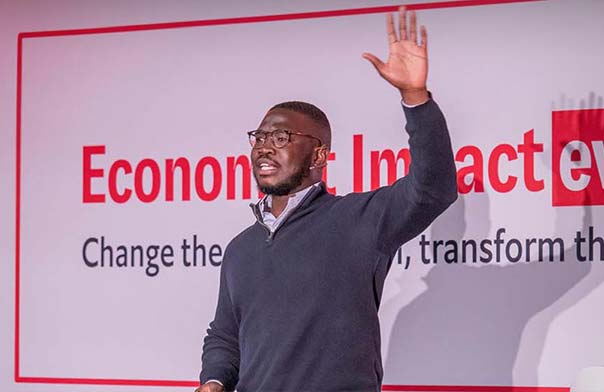
Milimo Banji
Gen Z expert
Milimo, an entrepreneur and influential advisor, leads TapIn as its founder and CEO. This forward-thinking agency specialises in connecting leading UK employers with a rich spectrum of Gen Z talent, fostering inclusion and innovation in the workplace. With a seat on the boards of FTSE 100 companies, Milimo offers profound insights into the motivations and values shaping the next generation of professionals.
View Milimo Banji’s full speaker profile.
Fair Policies and Practices
Equality begins with considerate, fair policies catering to employees’ diverse needs. These include:
- Equal pay audits to ensure a fair wage.
- Flexible working arrangements to accommodate different backgrounds, e.g. disabled employees and caregivers.
- Clear pathways for career progression that remove barriers for underrepresented groups.
These initiatives send a powerful message: diversity is not a box-ticking exercise but a commitment to genuine inclusion and respect.
Celebrate Success Stories
Highlighting stories of individuals who have overcome barriers or contributed meaningfully to the organisation’s growth can inspire others and highlight just how vital diversity and equality can be.
Just as explorers recount their journeys to ignite hope and determination, celebrating diversity champions within the workplace fosters a culture of recognition and motivation.
Start Your Journey to a Diverse Workplace with JLA
Promoting equality and diversity in the workplace is an ongoing journey, a shared challenge that calls for collaboration, resilience, understanding and innovation.
By embedding inclusivity into the fabric of its operations, an organisation can build stronger, happier teams, unlocking the massive potential of a truly diverse workforce.
With the help of JLA, you can rethink your approach to inclusivity and take meaningful steps to ensure that every individual – regardless of background – has the opportunity to thrive.
If you’re ready to embark on a transformational journey to a brighter, more inclusive future, contact us to book a Diversity and Inclusion Speaker today.